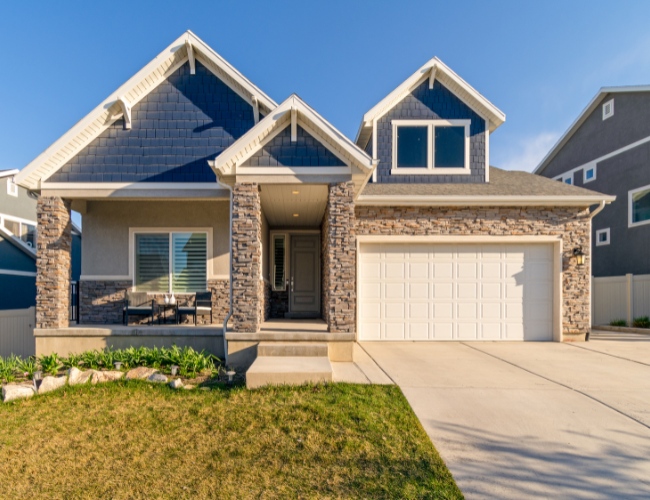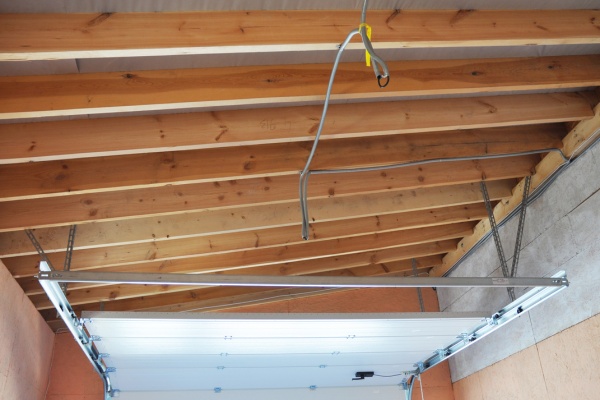Is your garage door acting up? From stubborn refusal to open to unsettling squeaks and groans, garage door issues can be frustrating and even dangerous. This comprehensive guide will equip you with the knowledge to diagnose and fix many common problems, saving you time, money, and potential headaches. Let's get your garage door working smoothly again!
What Are the Most Common Garage Door Problems?
Homeowners frequently encounter several frustrating garage door issues. Among the most prevalent are doors that won't open or close properly, doors that are stuck or off track, noisy operation, and broken springs or cables. These problems can stem from various sources, including faulty openers, damaged sensors, worn rollers, or inadequate lubrication. Understanding these common issues is the first step towards effective troubleshooting and repair. Identifying the specific problem is key to determining the best course of action, whether it's a simple DIY fix or the need to call a professional. Regular maintenance, including lubrication and inspection, can significantly reduce the likelihood of many of these problems.
How Do I Fix a Garage Door That Won't Open?
A garage door refusing to open can be incredibly inconvenient. The first step involves systematically checking several components. Begin by inspecting the power supply to the garage door opener, ensuring it's properly plugged in and the circuit breaker hasn't tripped. Next, test the remote control batteries, making sure they have sufficient power to transmit signals. If the opener still doesn't respond, check the opener's internal components to see if there are any visible signs of damage or loose connections. Often, a simple reset of the opener can resolve the issue. Consider also investigating the safety sensors for alignment issues or obstructions.
Inspecting the Garage Door Opener
The garage door opener is a complex piece of machinery. Various internal components, including the motor, gears, and circuit boards, can malfunction. Before attempting any repairs, always disconnect the power supply to the opener to prevent electrical shock. Visually inspect the motor for any signs of damage or overheating. Carefully examine the chain or belt drive system for any signs of wear, breakage, or misalignment. If you notice loose connections, burnt wires, or any significant damage, it's best to consult a professional technician for repairs or replacement.
Checking Safety Sensors
Safety sensors are critical for preventing accidents. These sensors are usually located near the bottom of the garage door tracks. They use infrared beams to detect obstructions. If the sensors are misaligned or obstructed by debris, the garage door will not open or close. Clean the sensors and ensure they are properly aligned, typically indicated by a small, illuminated light. If the problem persists, the sensors may need replacement. Safety is paramount, so don't ignore these vital components.

Why Is My Garage Door Stuck?
A stuck garage door often indicates a more serious mechanical issue. The most common culprits are doors that have come off their tracks, problems with the door's spring mechanism, or issues with the rollers and their tracks. A door coming off track usually requires careful realignment. Sometimes, a simple adjustment can resolve the problem, but if the track is bent or damaged, professional repair or replacement may be necessary. Issues with the springs or cables https://finnifkp322.theglensecret.com/unearth-literary-treasures-exploring-strathcona-s-best-bookstores-in-2025 necessitate caution, as improperly handling these components can result in injury. A stuck garage door can indicate a need for thorough inspection and potentially significant repairs.

What Should I Do If My Garage Door Is Noisy?
Noises such as squeaking, grinding, or banging are often indicators of wear and tear, needing lubrication or replacement of parts. The source of the noise can help pinpoint the problem. Squeaking often suggests the need for lubrication of rollers, hinges, and tracks. Grinding noises may indicate that the rollers are worn or damaged, needing replacement. Banging noises might indicate a problem with the springs or cables. Regular lubrication and proactive maintenance, including inspecting the rollers and tracks for damage, can help prevent many types of noisy operation.
How Can I Identify a Broken Spring or Cable?
Broken springs or cables are serious issues requiring professional attention. The signs of a broken spring include a noticeably unbalanced door, making it difficult to open or close, or one side sitting noticeably higher than the other. Broken cables are often visually apparent as the cable may have snapped or come completely off the drum. Attempting to repair these components yourself is extremely dangerous. Given the tension and potential for serious injury, immediate professional assistance is crucial.
When Should I Call a Professional for Garage Door Repair?
While some minor repairs are DIY-friendly, certain situations demand professional help. These include issues with springs, cables, severely damaged tracks, complex opener malfunctions, and any repairs that seem beyond your capabilities. When in doubt, it's always best to consult a professional, especially when safety is concerned. Professional garage door repair technicians have the expertise and equipment to handle complex repairs safely and efficiently, ensuring long-term functionality and safety.
Frequently Asked Questions
- What should I do if my garage door won't close fully? Check the safety sensors and ensure there are no obstructions. Also inspect the tracks for misalignment and lubricate any moving parts. How can I tell if my garage door spring needs replacing? Look for signs of breakage, uneven door balance, or difficulty in opening or closing the door. What causes a garage door to come off track? Forced opening, strong winds, or obstacles in the path of the door can cause it to derail. Are there any quick fixes for a garage door that makes loud noises? Lubricating the moving parts (rollers, hinges, tracks) with appropriate lubricant can often quiet noisy operation. Can I perform all garage door repairs myself? No, some repairs, particularly those involving springs and cables, are best left to professionals due to safety concerns.
In conclusion, addressing garage door problems proactively can save you from costly repairs down the line. By understanding the common issues and following the troubleshooting steps outlined above, you can keep your garage door operating smoothly and safely. Remember, safety is paramount. If you're unsure about any repair, don't hesitate to contact a qualified professional. Your garage door is a significant investment—taking care of it will ensure its longevity and your peace of mind.